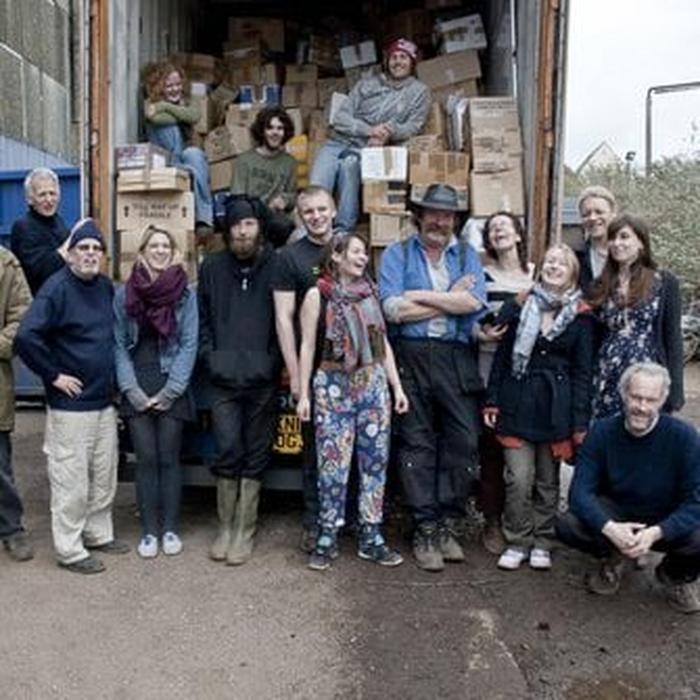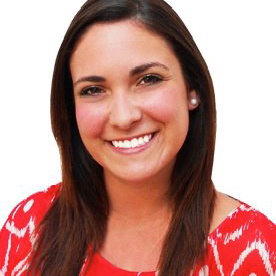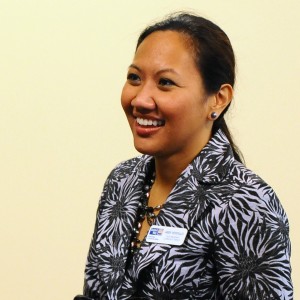
Ever wondered how to get started working in PR, entertainment, finance, or another profession? Over the next two weeks, we’re putting together a guide to breaking into these cool fields and more, brought to you by those who know it best. Keep checking in for an inside look at how to launch your dream career!
Want to make the world a better place, but aren’t sure where to start? A career in the nonprofit world could be a fit for you. Working with nonprofits will give you the opportunity to use your skills and talents—from marketing to event planning to business development—for the sake of the greater good.
But, as one seasoned nonprofit worker, Abby Verdillo, pointed out, it takes more than just a good heart to succeed in this field. To help you get your start, we talked to three professional do-gooders and got their advice for making a big impact in nonprofits. After reading what they have to say, scroll to the bottom to start exploring awesome nonprofits today!
 Melinda Price, Community Outreach and Marketing Coordinator
Melinda Price, Community Outreach and Marketing Coordinator
Company: Autism Community Network
Years of Professional Experience: 6 months
Brief Description of Job: I am the spokesperson for my nonprofit in the community. I execute all our communication efforts, from our social media presence to relations with the media to attending events within the community. I communicate with other organizations in the area, potential donors, as well as the clients and families we help.
Why did you choose this field?
While it took me awhile to realize it, I chose this field because of my passion for giving back to the community. Growing up, I always made it a point to volunteer on my own or through my sorority. But I considered this to be a hobby more so than a potential career path. Then, during my last semester of college, I landed a communication internship at my first nonprofit—a fraternity headquarters.
While fraternities are most recognizable by their individual chapters, on a larger scale they are national organizations that give back in a big way. While I was interning there, I realized that this field might be a great fit. I not only loved the small atmosphere of the office that allowed individuals to take on more responsibility, but I also loved that my efforts were clearly helping people take action and having an effect on the community.
What did you want to do in college?
While I was in college, I was unsure of exactly what I wanted to do. I knew it would be something that played to my creative strengths, but my degree in mass communications could take me down a lot of different paths—from public relations to social media strategy to traditional advertising—all of which I enjoyed. It was just a matter of choosing one.
That indecision led me to a string of internships to find my path. I held five internships during my last two years of undergrad (three of which were with the Daily Muse founders!). Almost every position focused on a different field in creative marketing and writing. I loved all of them, but it wasn’t until my final internship at the fraternity that I found a path that would allow me to do all the things I loved in one position: public relations, social media strategy, journalism, event planning, and advertising.
What advice would you have for someone breaking into your field?
Focus on being well-rounded. Since nonprofit organizations generally have a smaller staff to keep down overhead costs, it’s probable that you’ll be wearing many hats in your position. Knowing a little bit of everything will go a long way.
I would also suggest getting a bit of background knowledge on exactly how a nonprofit organization works. For example: where nonprofit organizations get their funding, how donor acquisition works, what the requirements are for a 501(c) organization, and some of the language that is used in the nonprofit sector. One great way to build up your knowledge is through an informational interview with someone already in the field. They’ll be able to give you the lowdown from an inside perspective. You can also look up a specific organization on Guidestar for more information. This will help you to stand out from the pack of applications and give you a sense of what you’re getting into.
It’s also important to keep in mind that a salary in the nonprofit world is generally a lot lower than traditional businesses. If you tend to be money-centric, this may not be the field for you. However, if giving back to the community lights up your life, then go for it!
What is different about the hiring process in your field than in other fields?
First, in your application, make sure to play up the volunteering you’ve done in the past. Not only does this show your involvement and passion, but it also highlights your commitment to giving back to the community—which is universally a good sign for a nonprofit organization.
During the interview, be prepared to discuss the specific cause the organization supports and its role in that cause. The organization also wants to know that you’re knowledgeable about it and that you’ve done your research.
 Jacquelyn Ulrich, Cultural Orientation Coordinator
Jacquelyn Ulrich, Cultural Orientation Coordinator
Company: Lutheran Services of Georgia, Inc.
Years of Professional Experience: 3
Brief Description of Job: Working within the refugee resettlement process to assist new arrivals in adapting to life in their new home.
Why did you choose this field?
Numbers have always bored me, but people never do. I chose refugee resettlement because I was interested in social work and humanitarian services in an international capacity. I’m also an anthropologist at heart, so culture and language fascinate me. In this job, I get to help people from all different countries who have been victims of torture, persecution, and violence create a new life in safety.
What did you want to do growing up?
Growing up, I wanted to live abroad as a diplomat. When I realized that politics wasn’t necessarily my strong suit (neither was diplomacy!), I decided that my calling was in social work.
What was your first job in this field, and how did you land it?
My first job wasn’t actually a job—it was volunteering. When my husband and I got married, we moved to Atlanta for an amazing career opportunity he was offered. While I was looking for a job in a rough market, I decided I would volunteer teaching English to refugees at a local nonprofit. I immediately fell in love with the students I taught, and knew that I wanted to do something that would have a direct impact on the lives of local former refugees.
What has been the most surprising thing about working your field?
Honestly, the most surprising thing about working in this field is the turnover rate of employees. I’ve worked in the same office for three years, and out of the direct service colleagues I started with, I’m one of the only ones left. Social work in general is a field with an alarmingly high, rapid burnout rate. In deciding to enter the social work area—especially with a population as vulnerable as newly arrived refugees—you have to know what you’re getting into.
What advice would you have for someone breaking into your field?
Volunteer. No, seriously—volunteer. Identify a nonprofit you feel passionate about (whether it’s social services or not), and go for it. In the evenings, on the weekends—work whenever you have time, just get your face and your name known. The nonprofit sector is actually a pretty small network, with many employees of different agencies knowing one another. Once you’re known around the circuit for being a stellar volunteer, it will be easier to succeed when you’re asking for a paid position.
What is different about the hiring process in your field than in other fields?
People skills are paramount. If your soft skills aren’t up to par, forget it. In all nonprofits, managers want employees to be passionate about the agency and its mission. Read up on the agency, and know what each program does. I once interviewed a potential intern who asked me what a refugee was. Don’t be that girl.
What industry-specific job search resources would you recommend for job seekers in your field?
Opportunity Knocks and Idealist are fantastic, but expensive for employers to use. Odds are, if you’re looking for smaller nonprofits, they won’t be able to post anywhere but directly on their website. Make sure you check out the websites of agencies that you’re interested in to see if they’re hiring (or shoot them an email to ask).
 Abby Verdillo, Vice President of Community Impact
Abby Verdillo, Vice President of Community Impact
Company: United Way of Roanoke Valley
Years of Professional Experience: 12
Brief Description of Job: I work with our community partners to advance the common good in the Roanoke Valley by mobilizing people and investing our community’s assets. This includes working with committees to further our education, income, and health goals, conducting research on and developing resources for community initiatives, and making sure the word is getting out there about all the great things that United Way does.
Why did you choose this field?
My experiences growing up in a developing country (The Philippines) and my personal values and beliefs created a strong desire to be part of something bigger than myself. Seeing poverty and meeting the people affected by it is a powerful experience. It makes you very grateful for what you have and moves you to use the good circumstances and talents you were dealt to change the status quo.
As we sang the school hymn at the end of college commencement, I remember seeing a banner unfurled with the words “Serve the People.” It was a final nugget of wisdom from the university, an indelible challenge issued to every student, a call to action to make a difference. I chose to respond by being in a field where I could play an active part in developing solutions to social issues.
What was your first job in this field, and how did you land it?
Knowing my passion for community development and sustainable agriculture, one of my professors from the University of the Philippines recommended me for an opening at the MASIPAG National Secretariat (Farmer-Scientist Partnership Development, Inc). I ended up getting the job as Advocacy Officer for this 30,000 strong national network of farmers' organizations, non-government organizations, and scientists working on biodiversity conservation and sustainable agriculture in the Philippines.
It was an incredible experience! I got to meet and work alongside some of the world’s best thinkers on the issue and be inspired by the tenacity of farmer leaders in the most remote areas of the country. I learned to plan and coordinate activities in collaboration with others, write proposals and reports for funders, and present at local and international events.
I believe these experiences provided a great foundation for the work I would be doing years later with United Way. I knew from there that I was in a field where I wanted to be.
What advice would you have for someone breaking into your field?
Nonprofit work is challenging, and you need both the heart and mind fully engaged for the task. Be prepared for long hours, thankless efforts, and at times, opposition. Things aren’t always glamorous but you have to be willing to do it all to get the job done. Luckily, when your work becomes a natural extension of who you are, no task is too big or small. This keeps you motivated and also helps others stay the course.
What is different about the hiring process in your field than in other fields?
Because the issues that many nonprofits are tackling are highly complicated and require many partners to work together to implement a solution, nonprofit employers look for individuals who have strong collaborative and relationship building skills. Does this person have the ability to bring people together, engage, mobilize, and inspire them to be part of the agency’s work?
You look for someone who has these skills, and on top of that, is a big believer of the work. It’s a tall order and you find that just because someone has a “good heart” doesn’t mean they are a good match for nonprofit work. A solid background on the issue (formal or informal education) paired with a strong portfolio of paid and volunteer experiences also helps you out by building competence and credibility.
Ready to start job hunting? See what it's like to work at these great nonprofits!

charity: water
charity: water is a nonprofit organization bringing clean, safe drinking water to those in need, using 100% of its public donations to fund water projects in developing countries.
The Bridgespan Group
The Bridgespan Group is a nonprofit advisor and resource for mission-driven organizations and philanthropists.
Heartland Alliance
Heartland Alliance is the leading anti-poverty organization in the Midwest.




